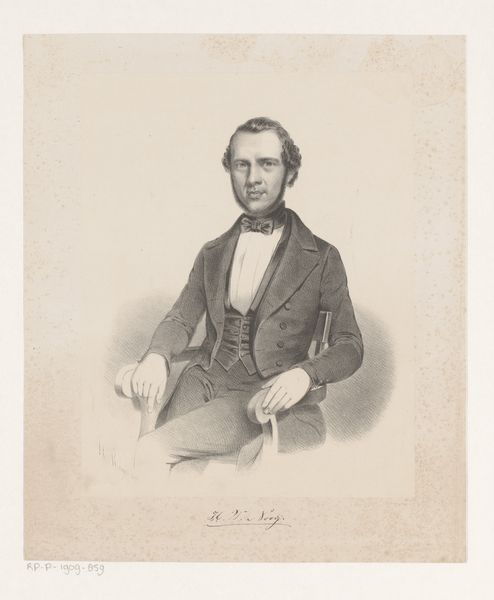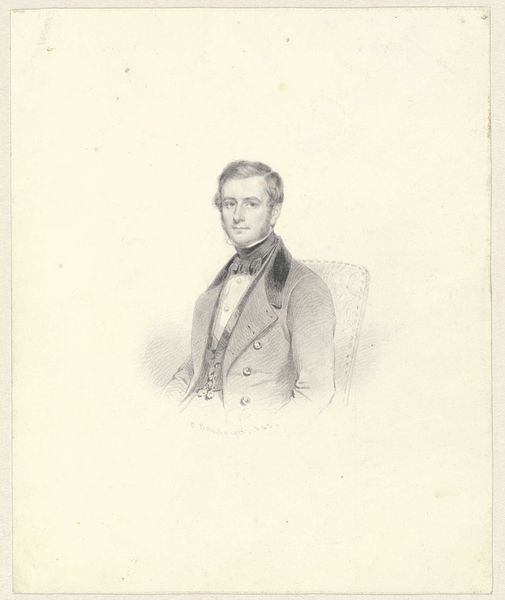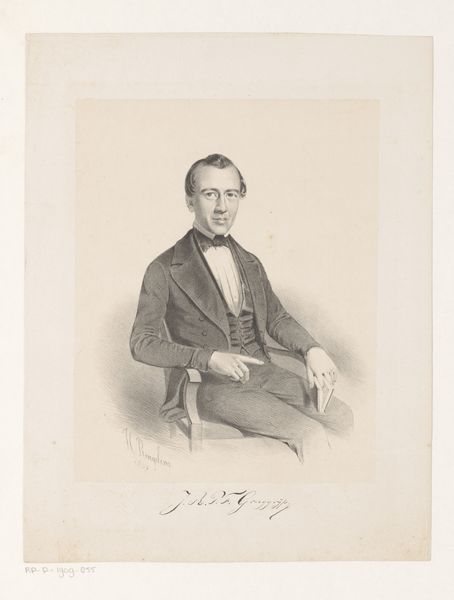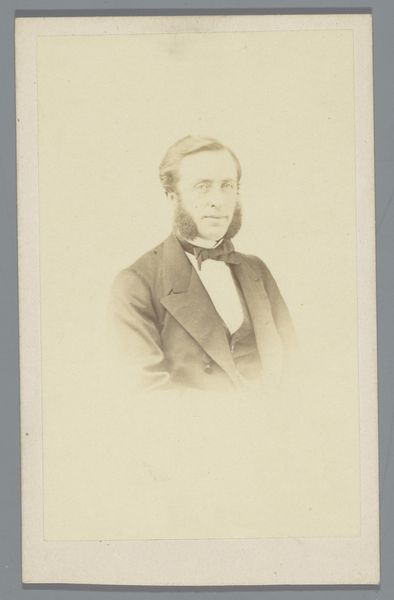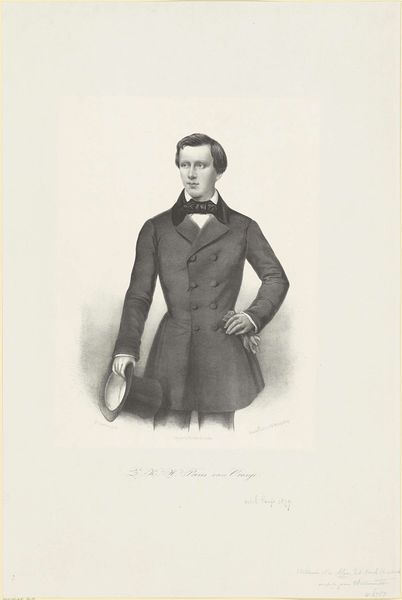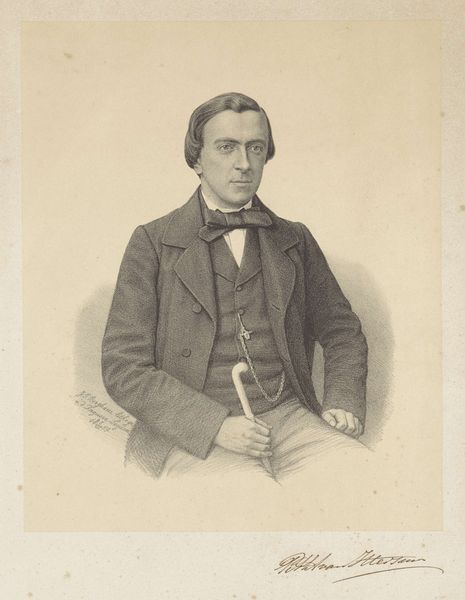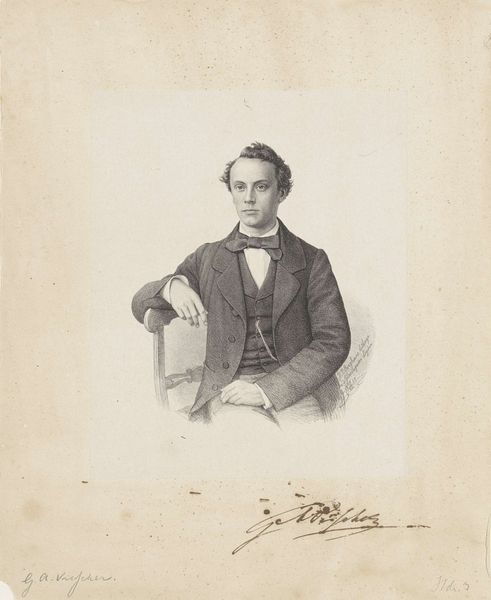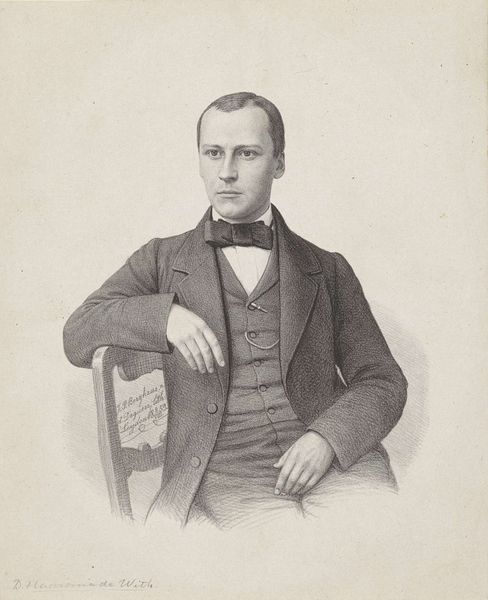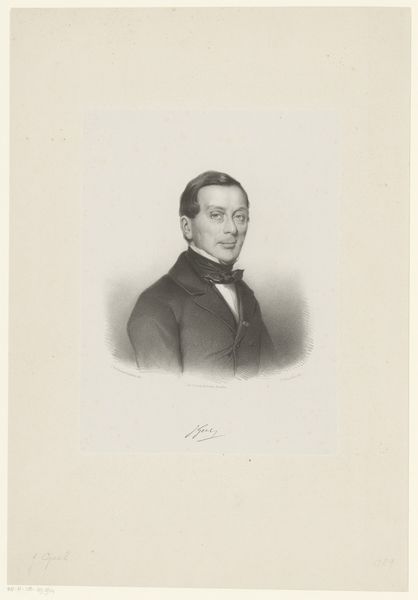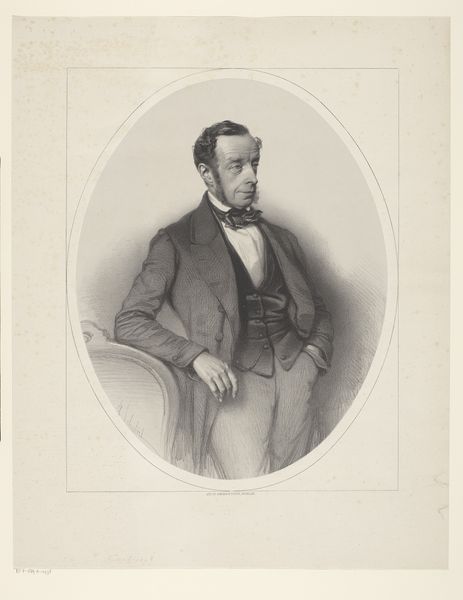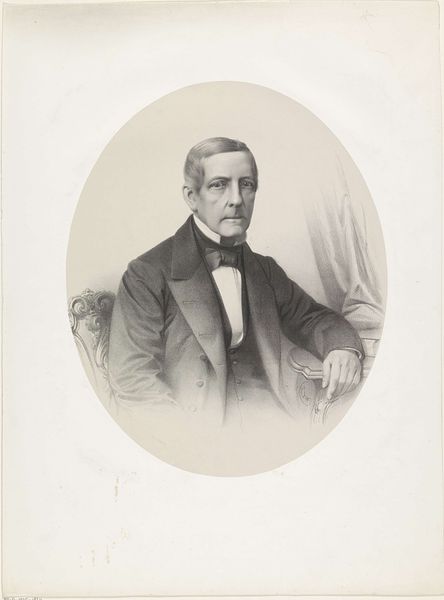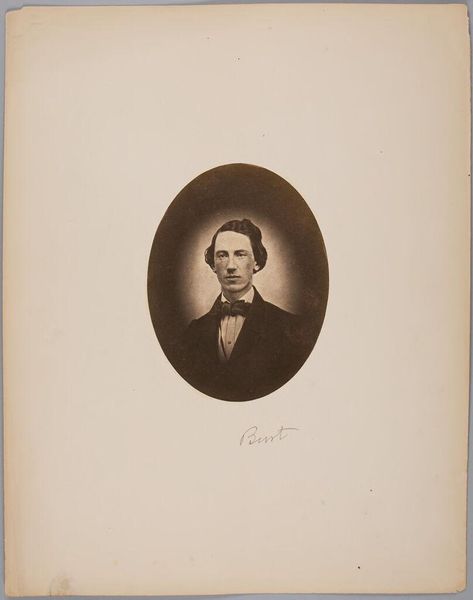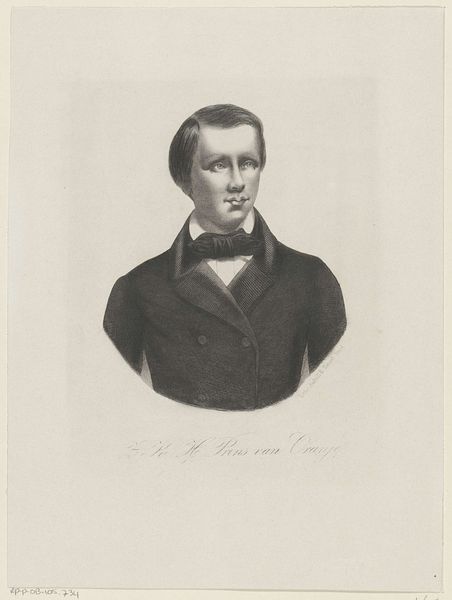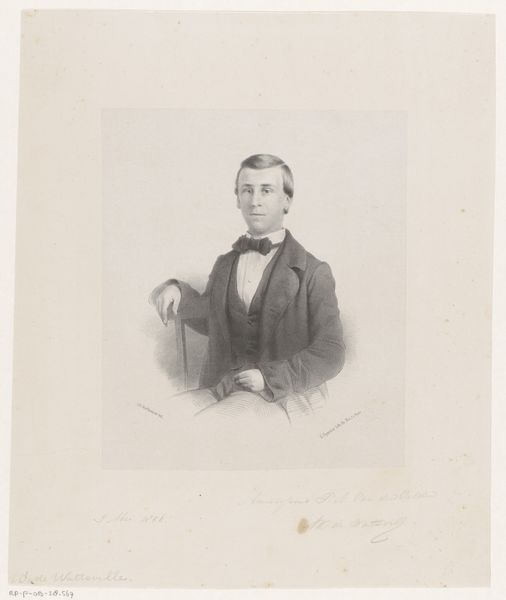
#
portrait
# print
#
caricature
#
pencil drawing
#
19th century
#
genre-painting
#
realism
Dimensions: height 438 mm, width 329 mm
Copyright: Rijks Museum: Open Domain
This print of Willem, Prince of the Netherlands, was made anonymously using a method called lithography. This process involves drawing on a flat stone with a greasy crayon, then treating the stone so that ink adheres only to the drawn areas. Lithography was revolutionary, allowing for relatively quick and inexpensive reproduction of images, fueling the rise of mass media. Look closely, and you can see the subtle tonal gradations achieved through this technique, creating a soft, almost photographic quality. The texture of the paper also plays a role, adding a slight toothiness to the image. Prints like these democratized portraiture. They made images of prominent figures like Prince Willem accessible to a wider audience. The labor involved was different from traditional painting; it was more about mechanical reproduction than individual artistic expression, reflecting the changing landscape of art and its relationship to industry. Appreciating the means of production allows us to understand its cultural impact, bridging the gap between fine art and the world of mass production.
Comments
No comments
Be the first to comment and join the conversation on the ultimate creative platform.
